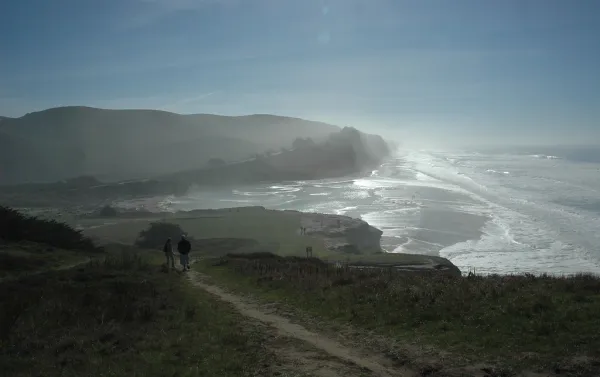Origin

Middle English: from Old Northern French waitier, of Germanic origin; related to wake. Early senses included ‘lie in wait (for’), ‘observe carefully’, and ‘be watchful’.

And what are the vagabonds in Beckett’s play waiting for? Obviously Godot. And yet this other meaning, to observe carefully is not often mentioned.
For example, Estragon wants to tell Vladamir a dream. “DONT’ TELL ME!” he says in capital letters, so to speak. Well, Estragon wonders if it’s time for the two to part. But then he thinks better of it. “That would be too bad, really too bad. [Pause.] Wouldn’t it, Didi, be really too bad? [Pause.] When you think of the beauty of the way. And the goodness of the wayfarers. [Pause. Wheedling.] Wouldn’t it, Didi?”
I leave you, Dear Reader, to contemplate the beauty of the way.

For a number of years now, I have jotted down thoughts about waiting, while waiting…in the Dr.’s office, in the car, at Church, on hold… I keep the notes in my purse and it’s interesting ( to me, at least) to look at them sometimes and see where my thoughts tend while waiting. Ah, the beauty of the way. Every ‘wait’ is like a little vacation.